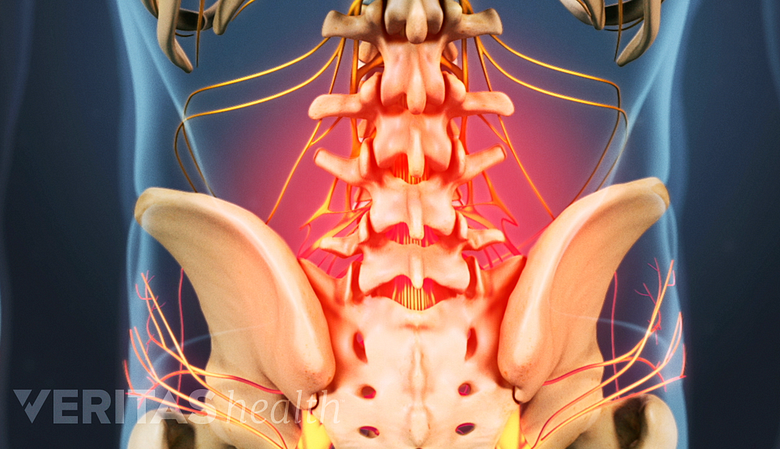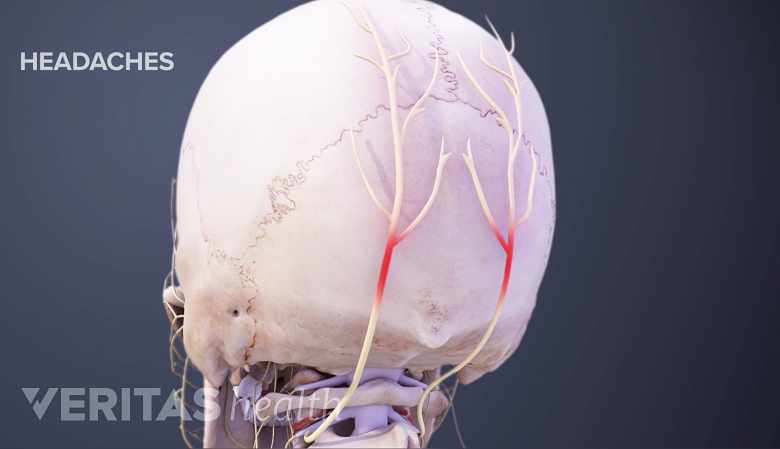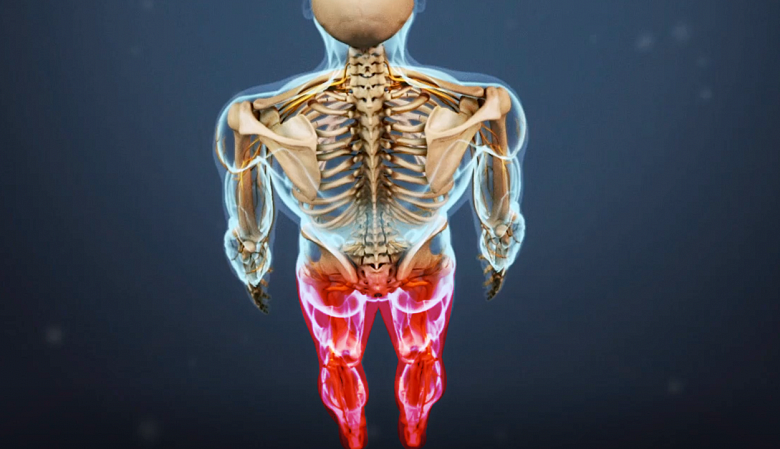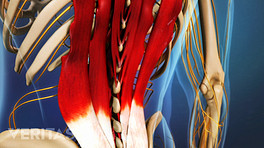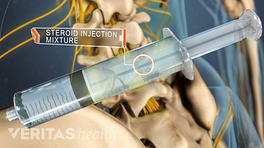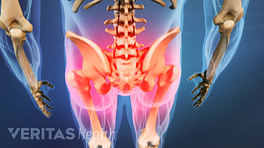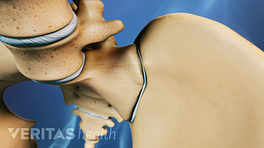The injection technique involved in prolotherapy requires training and skill on the part of the physician to help reduce the risk of side effects and serious adverse events.
In This Article:
- Prolotherapy and Chronic Back Pain
- What is Prolotherapy Treatment for Chronic Back Pain?
- Potential Risks and Complications of Prolotherapy
Common and Transient Side Effects of Spinal Prolotherapy
Increased back pain within the initial 72 hours is a common side effect after spinal prolotherapy.
A few side effects may be experienced after the prolotherapy procedure, which are usually transient and self-limiting. 1 Rabago D, Slattengren A, Zgierska A. Prolotherapy in primary care practice. Primary Care: Clinics in Office Practice. 2010;37(1):65-80. These side effects may include but are not limited to:
- Pain or soreness at the injection site 1 Rabago D, Slattengren A, Zgierska A. Prolotherapy in primary care practice. Primary Care: Clinics in Office Practice. 2010;37(1):65-80.
- A sense of fullness around the injection site 1 Rabago D, Slattengren A, Zgierska A. Prolotherapy in primary care practice. Primary Care: Clinics in Office Practice. 2010;37(1):65-80.
- Numbness in the injected area 1 Rabago D, Slattengren A, Zgierska A. Prolotherapy in primary care practice. Primary Care: Clinics in Office Practice. 2010;37(1):65-80.
- Increase in back pain during the first 72 hours after the injection 1 Rabago D, Slattengren A, Zgierska A. Prolotherapy in primary care practice. Primary Care: Clinics in Office Practice. 2010;37(1):65-80.
Flaring of back pain is anecdotally reported but its incidence is not well documented. Pain flares are typically well-controlled with pain-relieving medication, such as acetaminophen. Rarely, the pain flare is severe and may need stronger medication, such as narcotic drugs. Aspirin and non-steroidal anti-inflammatory drugs (NSAIDs) are not recommended to treat post-injection pain after prolotherapy, as they may interfere with the inflammation and healing process. 1 Rabago D, Slattengren A, Zgierska A. Prolotherapy in primary care practice. Primary Care: Clinics in Office Practice. 2010;37(1):65-80.
Serious Adverse Events After Spinal Prolotherapy
Rarely, headaches occur as a side effect of spinal prolotherapy.
Prolotherapy performed by an experienced practitioner is relatively safe. In rare cases, serious adverse events may occur when delicate neurological tissues of the spine are inadvertently injured or if the patient is allergic to one or more contents of the injection solution. These rare adverse events may include but are not limited to 1 Rabago D, Slattengren A, Zgierska A. Prolotherapy in primary care practice. Primary Care: Clinics in Office Practice. 2010;37(1):65-80. :
- Lightheadedness
- Headache
- Pneumothorax (collapsed lung)
- Localized or full-body allergic reaction
- Infection
- Nerve damage
- Spinal cord irritation or damage
- Spinal disc injury
Rarely, damage to small blood vessels may cause localized bleeding and pooling of blood within the soft tissues, epidural space, or membranes of the spinal cord. A hematoma or blood clot may form within the artery, blocking the blood supply to vital tissues, such as the brain and/or spinal cord.
These adverse events are rare and can be similar to the potential risks from any form of spinal injection for treating back pain, and are not limited to prolotherapy. 1 Rabago D, Slattengren A, Zgierska A. Prolotherapy in primary care practice. Primary Care: Clinics in Office Practice. 2010;37(1):65-80.
When to Call a Doctor
Numbness or leg weakness after prolotherapy requires prompt medical attention.
Serious symptoms following a prolotherapy injection that require immediate medical attention include:
- Severe headache that progressively increases and/or worsens while sitting up or standing
- A fever of 101° F or greater, which may indicate an infection
- Feeling of numbness and/or weakness in the leg(s), which may indicate spinal nerve injury
It is important to call the doctor immediately if these symptoms occur. Additionally, any discomfort or abnormal feeling must be discussed with the doctor.
Read more about Specialists Who Treat Back Pain
When performed using standard precautions and administered by a skilled professional, prolotherapy injections are generally considered safe and beneficial for some patients with chronic back pain. Existing literature provides moderate evidence that prolotherapy is effective for back pain. Future studies with a more diverse inclusion of patients with specific back conditions may help provide a better understanding of the long-term pain relief with prolotherapy.
- 1 Rabago D, Slattengren A, Zgierska A. Prolotherapy in primary care practice. Primary Care: Clinics in Office Practice. 2010;37(1):65-80.
